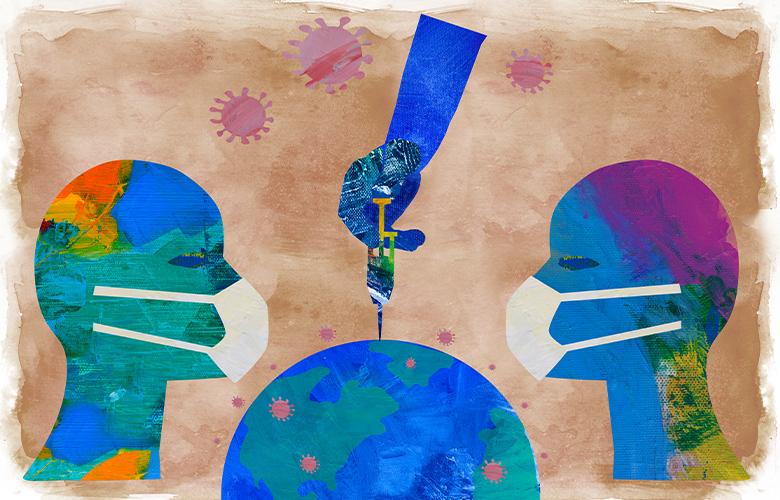
Entering Year 2 of COVID-19 pandemic life, some of us are seeing friends, family, and coworkers getting vaccinations while many of our internationally based colleagues, partners, and friends do not have the same opportunity. According to the Kaiser Family Foundation, high-income countries, comprising roughly 19% of the world’s population, have purchased 54% of the world’s available vaccine supply, enough “to cover more than twice their adult populations.”
This reality is one in a long line of social justice violations that leave behind those who have been historically colonized and oppressed. Denying this is to deny history itself. Feelings such as anger, frustration, fear, and anxiety are normal when we are living through unfair and inequitable situations.
However, in spite of these situations, it is also important that we take care of our mental health and that of our families as best we can. Psychological evidence affords us tools to withstand these times—evidence-based approaches that can help us cope with realities that are unfair and flawed. Here are some suggestions:
- Acknowledge it: Denying reality doesn’t change it, but it does make it feel worse. Acknowledge the challenges and emotions of living in these times, especially in under-resourced places.
- Remain connected: The desire to isolate when we are feeling badly can be powerful. By remaining connected to our community, our culture, and ourselves, we stay connected to what drives us. There is power and support in connection.
- Find joy in novelty: Try a new hobby, read a new book, or have a new experience. Try to infuse novelty into your life so you have things to look forward to.
- Express gratitude: Find ways to recognize the things you appreciate in your everyday life. Write down three things you are grateful for at the end of each day or intentionally express gratitude to others.
- Recognize your hard work: Show self-compassion for what you have been through, sacrifices you have made, and the ways you work to remain safe during this pandemic.
- If you are able, advocate: Advocate for COVID-19 vaccine access for yourself, your family, and your community, if you can.
It is up to those of us who possess privilege to advocate for increased vaccine equity. Thus, I urge all who have received a vaccine to:
- Use your privilege to support others, both within our communities and abroad, in achieving greater vaccine equity
- Determine how you can help others access vaccines or other needed resources
| Jillian Neill is a licensed clinical psychologist. She brings expertise in school and young adult mental health and mental health promotion to her role as an associate project director at EDC. |

Add new comment